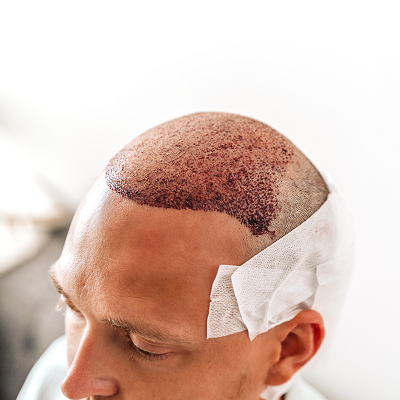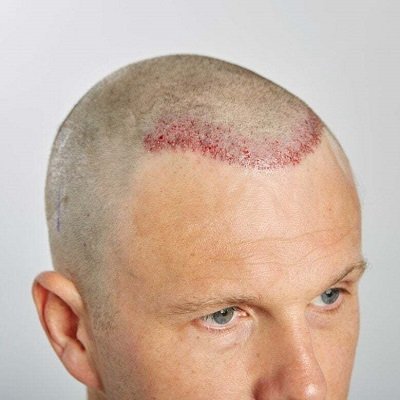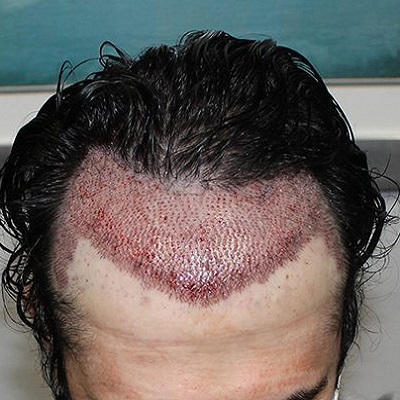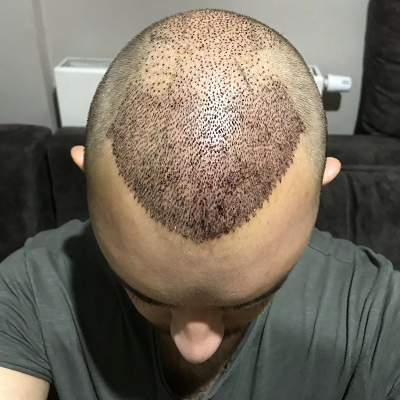
Hair transplants are a powerful treatment for hair loss. However, this doesn’t stop as quickly because the treatment is finished. One of the most common problems after hair transplant surgical treatment is scalp swelling. Although it’s a temporary side effect, many patients feel worried about how long the swelling will last.
Let’s discover everything you want to recognise, primarily scalp swelling after a hair transplant, including timelines, care recommendations, and when to seek an examination. At Royal Cosmetic Surgery Clinic Islamabad, Dr Naveed Azhar gives professional guidance to make sure you recover without difficulty.
What Causes Scalp Swelling After a Hair Transplant?
Swelling is your body’s natural response to trauma. During a hair transplant, tiny cuts are made on your scalp to extract and implant hair follicles. This triggers infection, leading to puffiness within the treated location.
Swelling may additionally affect:
- The brow
- The upper side of the scalp
- The region across the eyes (in some cases)
While it may appear alarming, rest assured, it’s a normal and short-lived part of the healing treatment.
When Does Swelling Start, and How Long Does It Last?
Swelling generally starts around day 2 or 3 after your hair transplant. It would possibly peak on day 4 and begin to reduce typically by day 5 or 6. In most cases, the scalp returns to normal within a week. However, the timeline can range, depending on:
- Your body’s recovery speed
- The quantity of grafts transplanted
- Post-operative care
By following your surgeon’s advice and keeping your scalp covered, you can reduce the swelling even more quickly.
Is Swelling Painful?
Not usually. While swelling can also cause tightness or mild soreness, it usually isn’t painful. If you bear intense redness, it’s a great idea to touch your expert.
Tips to Minimize Scalp Swelling
To promote quicker recovery and stay fit, right here are some powerful tips:
Sleep With Your Head Elevated:
Keep your head raised using two pillows for the first 3 to 4 nights. This allows you to save fluid buildup around your forehead and scalp.
High intake of water:
High usage of water causes the flushing out of chemicals from the body and helps to reduce swelling
Prevent scratching:
If you feel itching on your scalp, then preventing scratching it helps to minimize swelling
Limit Physical Activity :
Heavy workouts and excessive movement should be prevented to reduce swelling
When Should You Worry About Swelling?
In most instances, swelling is not a motive for difficulty. However, you need to reach out to your doctor if:
- The swelling lasts for more than 7 days
- You are aware of pus, redness, or high fever
- The area will become more and more painful
Prompt conversation with your doctor ensures any complications are addressed early.
What to Expect During the Healing Phase
Besides swelling, other signs you may experience at some recovery point include:
- Scabbing: Tiny crusts may additionally form around transplanted follicles
- Itching: This suggests healing, but needs to be managed with care
- Shock loss: Temporary shedding of transplanted hair is completely normal
By the second week, your scalp will start to appear and feel more like its natural self. New hair growth typically begins around the third or fourth month, and the outcomes are seen through 9–12 months.
At Royal Cosmetic Surgery Clinic Islamabad, Dr Naveed Azhar ensures patients understand each phase of healing. From decreasing swelling to providing growth, his aid is complete and customised.
Why Managing Swelling Matters
Although it’s transient, it manages swelling:
- Prevents soreness
- Enhances recovery
- Protects the graft’s purpose
- Improves the beauty results
When you manage swelling carefully, you set yourself up for better, quicker hair healing results.
Book Your Consultation Today
If you’re making plans for a hair transplant or experiencing swelling after a surgical operation, don’t wait to get professional advice. Visit Royal Cosmetic Surgery Clinic Islamabad to talk with leading professionals who, without a doubt, understand your hair recovery wishes.
Book your session these days and take step one towards a confident, comfortable recovery.





